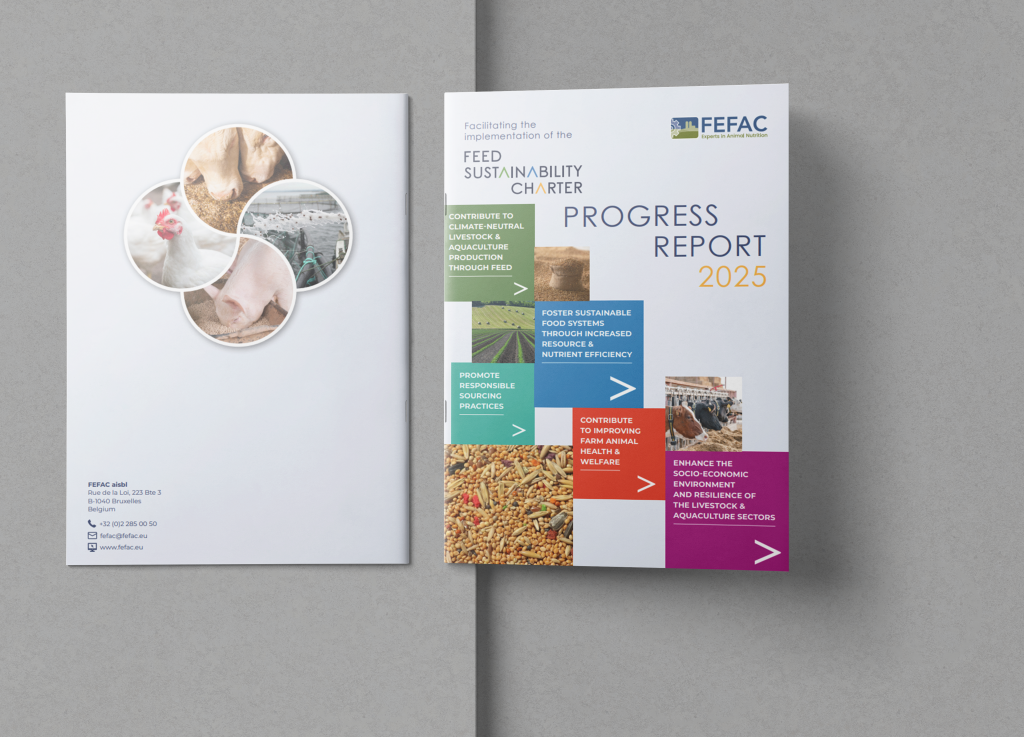FEFAC publishes 5th Feed Sustainability Charter 2030 Progress Report

On 17 October 2025, FEFAC published the 5th edition of its Feed Sustainability Charter 2030 Progress Report, marking the halfway point of the Charter’s implementation timeline since its launch in 2020. The report provides an overview of progress made by the European feed industry in advancing the Charter’s five ambitions—climate neutrality, responsible sourcing, animal health and welfare, resource efficiency, and socio-economic resilience—while addressing the impact of a rapidly changing geopolitical and regulatory environment.
The 2025 report comes at a time when the European feed sector is operating in a rapidly evolving geopolitical and global trade and market landscape. The arrival of the new European Commission and Parliament, alongside sweeping geopolitical developments, is prompting a recalibration of “mid- to long-term strategies to address both challenges and opportunities for the industry.
This year’s Progress Report edition has been updated with the adjustment from the previous EU Green Deal to the new EU Competitiveness Compass, as well as the new EU Vision on Agriculture and Food, published by the European Commission in January and February 2025, which places competitiveness, resilience, innovation, decarbonisation, and food security at the centre of EU objectives. The Progress Report shows how the feed industry contributes to these goals through a range of initiatives, spread out over the five Feed Sustainability Charter ambitions. Recent achievements include the endorsement of the EU Green Feed Labelling Guidelines, which establish harmonised tools for communicating the environmental performance of compound feed to livestock farmers, and the publication of the Circular Feed Platform Catalogue, calling for regulatory modernisation to unlock the use of safe, circular feed resources. Responsible sourcing remains a central ambition and concern, with the EU Deforestation Regulation impacting soy supply chains and the availability of compliant materials. At the same time, animal nutrition continues to support efforts to reduce antimicrobial use in livestock farming, while new initiatives at EU level are focusing on strengthening competitiveness and resilience through trade diversification while securing access to strategic, essential feed ingredients.
FEFAC President Pedro Cordero: “European feed manufacturers are navigating a period of uncertainty shaped by shifting global trade flows, geopolitical tensions and an evolving regulatory framework, while a new political cycle in Europe is opening opportunities to strengthen resilience and competitiveness along the whole Agri-Food chain. Despite these challenges, our sector continues to provide reliable solutions every day, working with farmers and value chain partners upstream and downstream to advance circularity in the feed and food chain, reduce environmental impacts and support the transition towards a more sustainable livestock economy. I warmly invite all stakeholders to read our 5th Progress Report as a testimony of our members’ commitment to boost circularity and sustainability of EU livestock and aquaculture production systems in practice.”